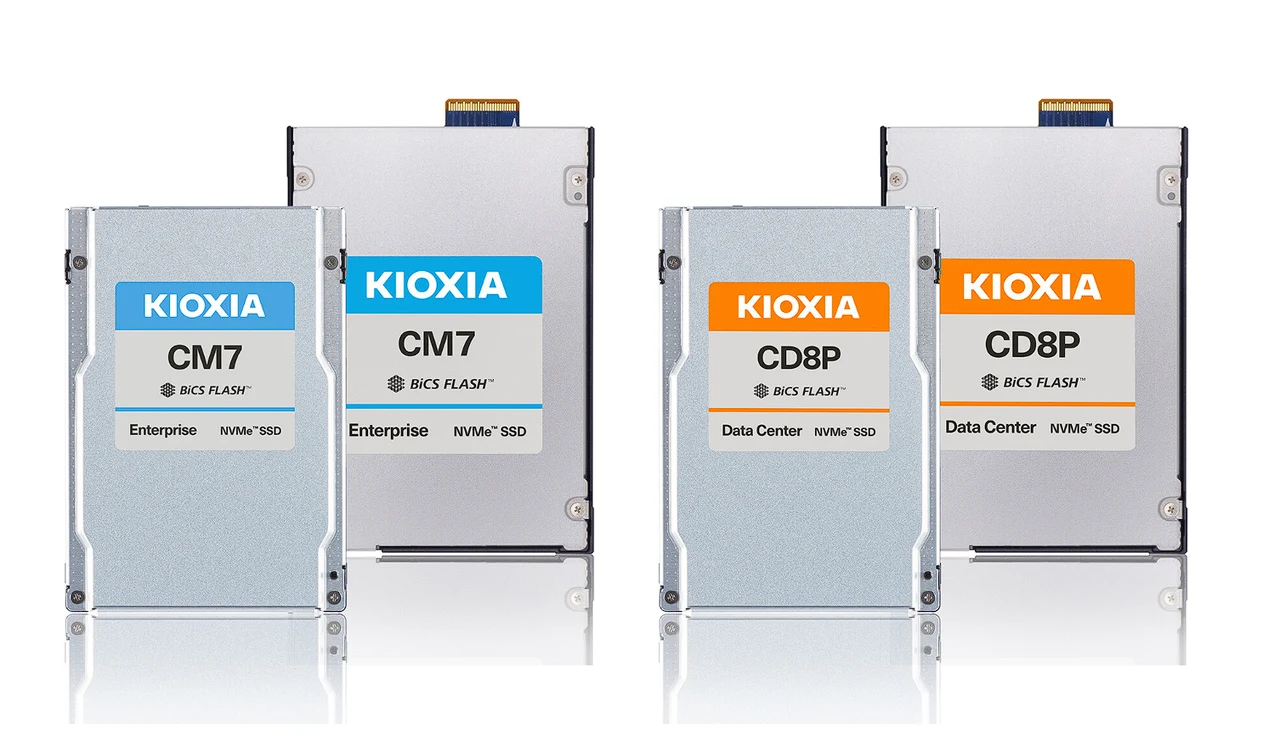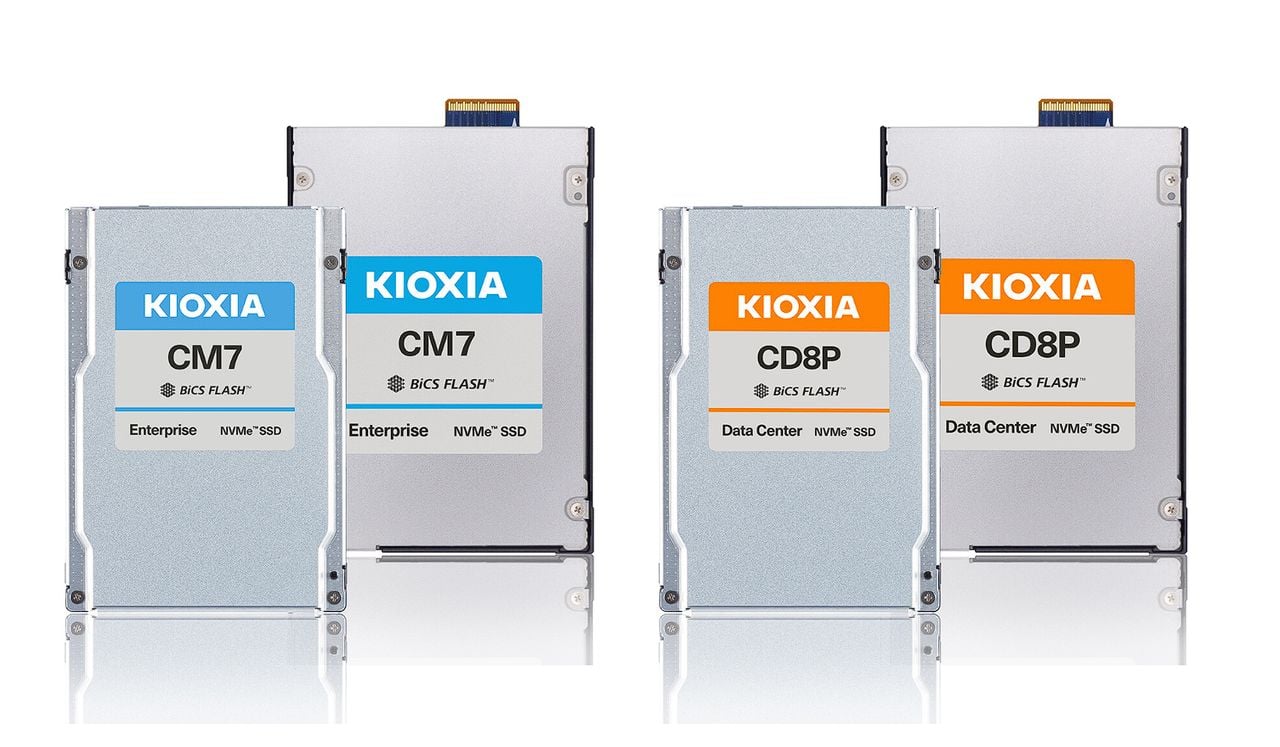
KIOXIA’s CM7 and CD8P series SSDs have successfully passed the compliance certification for PCIe 5.0 and NVMe 2.0 specifications. This achievement signifies a major leap in the data storage industry, as these new interface specifications offer significantly increased data transfer speeds and bandwidth compared to their predecessors.
The CM7 and CD8P series NVMe SSDs from KIOXIA have successfully undergone rigorous testing for compliance with the PCIe 5.0 and NVMe 2.0 specifications. The PCIe 5.0 interface specification, developed by PCI-SIG, allows for a doubled data transfer speed and bandwidth compared to the PCIe 4.0 specification. This translates to an impressive read throughput of up to 14,000 Megabyte/s for a x4 lane SSD, a significant improvement that can greatly enhance the performance of data-intensive applications.
KIOXIA PCIe 5.0 & NVMe SSD Storage
The tests for PCIe 5.0 compliance were conducted at PCI-SIG compliance workshops. These workshops serve as a platform for testing against PCI-SIG maintained systems and other leading manufacturers of PCIe products. The successful completion of these tests has led to the inclusion of KIOXIA’s CM7 and CD8P series drives on the PCI-SIG Integrator’s List. This inclusion is indicative of the drives meeting the stringent PCIe 5.0 specification requirements, thus assuring users of their performance and reliability.
“NVMe and PCIe technologies are the present and future of SSDs for personal and data center use,” said Maulik Sompura, senior director of product marketing for KIOXIA America, Inc. “At KIOXIA, we are always looking to bring cutting-edge drives that utilize new performance-maximizing standards to market. Compliance with the PCIe 5.0 and NVMe 2.0 specifications is critical to ensure our products deliver as promised.”
In addition to passing the PCIe 5.0 compliance tests, the CM7 and CD8P series drives have also successfully completed conformance testing for the NVMe 2.0 specification. This testing was carried out by The University of New Hampshire InterOperability Laboratory (UNH-IOL). As a result of this successful conformance testing, the drives have been added to the UNH-IOL’s official Integrator’s List. This further underscores the reliability and high performance of these drives, as they have been tested and certified by one of the most respected independent testing laboratories in the industry.
PCIe 5.0 NVMe SSD
The CM7 series enterprise SSDs and CD8P series data center SSDs from KIOXIA are available in different form factors and capacities to meet a variety of needs. The CM7 series SSDs are available in 2.5-inch and E3.S form factors in read-intensive and mixed-use endurances, with capacities up to 30.72 terabytes (TB) (2.5-inch only). Similarly, the CD8P series SSDs are also available in 2.5-inch and E3.S form factors in read-intensive and mixed-use endurances, with capacities up to 30.72TB (2.5-inch only).
“Rigorous testing processes give users confidence in the products they deploy in their data centers,” said Kerry Munson, Operations Manager, Datacenter Technologies for UNH-IOL. “KIOXIA NVMe SSDs have passed the stringent testing requirements that the UNH-IOL demands in order to be included in our NVMe Integrator’s List.”
The successful certification of KIOXIA’s CM7 and CD8P series SSDs for PCIe 5.0 and NVMe 2.0 compliance signifies a major advancement in the data storage industry. The increased data transfer speeds and bandwidth that these new specifications offer could greatly enhance the performance of data-intensive applications, making these drives an excellent choice for enterprises and data centers seeking to optimize their data storage and retrieval capabilities.
Filed Under: Technology News, Top News
Latest timeswonderful Deals
Disclosure: Some of our articles include affiliate links. If you buy something through one of these links, timeswonderful may earn an affiliate commission. Learn about our Disclosure Policy.

